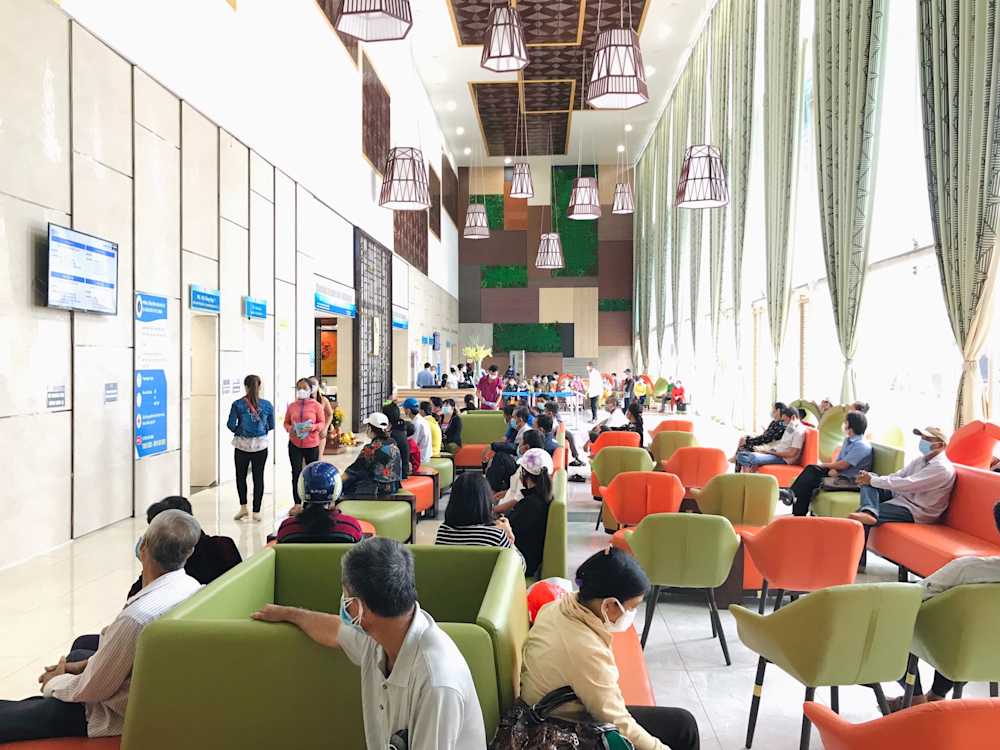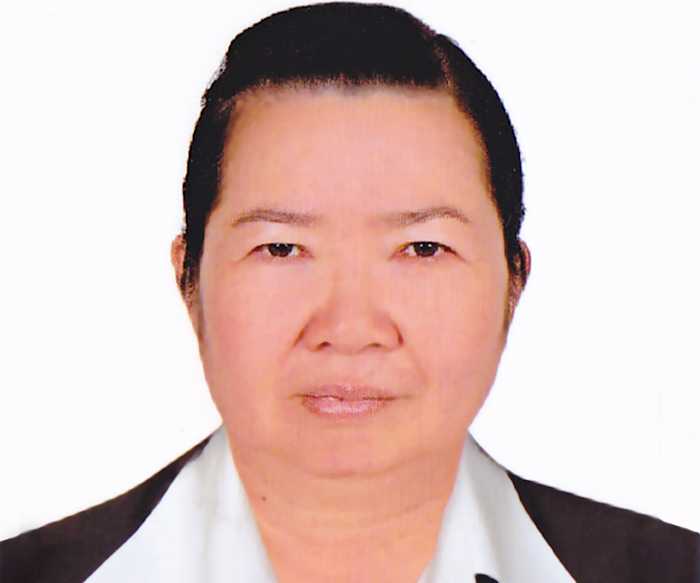An interview with the chairwomen of Hanh Phuc General Hospital
How direct investment in a local hospital advances a family’s mission for high quality care in rural An Giang

Earlier in 2021 when responsAbility, SIDA and Danske Bank joined forces to launch a novel Social Bond, one of the key impact targets was the health and WASH (water, sanitation and hygiene) sectors. responsAbility has provided critical financing to Hanh Phuc General Hospital, which will allow the company to to expand in the areas of preventive care (screening), diagnostic testing and cancer treatment. Learn more in this interview with Chairwomen Ms. Lu Bich Nguyen.

Ms. Lu Bich Nguyen, chairwoman of Hanh Phuc General Hospital since 1997, comes from a family with long traditions in medicine. Her father, Dr. Lu Dinh, was a well-renowned doctor who played a pivotal role in setting up An Giang Cardiovascular Hospital in 1991 and in founding Hanh Phuc General Hospital in 1997 as one of the first three private hospitals in Vietnam. As an entrepreneur with a passion for positive social impact, she also has other businesses in the sustainable agriculture and food sectors.
Q: Ms. Lu Bich Nguyen, why did you get involved in running a hospital – entering new ground in your country?
My father was Head of the Official Health Protection Committee in An Giang Province, Vietnam. Noticing a rising demand for cardiology treatment among local people, he liaised with An Giang’s authorities to open An Giang Cardiology Hospital in 1991. Back then, there was no legal framework for private hospitals, thus this hospital operated as a state-owned entity. When he retired in 1997, Vietnam had just established a new framework for private hospitals, so with strong determination, he set up Hanh Phuc Hospital as one of the first three private hospitals in the entire country. My brother and I followed in my father’s footsteps with his entrepreneurial spirit, committed to continuing his legacy.
Q: What are the challenges of running the hospital?
As a first mover, our new business model did not instill trust among doctors, nurses and other medical workers, so recruitment for good talent was challenging; we also faced the same difficulties with attracting patients…
… but you kept going in the face of adversity …
… yes, the learning curve was steep, but we had a vision: to advance, expand and improve access to good quality healthcare services at affordable prices, which is what the Vietnamese people deserve.
Q: So, you helped a novel approach to break through?
Well, in the late 1990s, as there were few alternatives in terms of healthcare providers, public hospitals perceived themselves to have much more bargaining power against patients. That mindset gave place to bad attitudes and service quality. And it encouraged us to invest properly in our medical staff and service quality to really make a difference. Private initiative can benefit the more vulnerable by giving more choice to patients.
Q: How has Covid affected your mission?
The pandemic has distressed global economies and the healthcare sector and our operations were no exception. However, we remained fully committed to maintaining the livelihoods of all our staff members, and also maintaining the full scope of healthcare services for our patients.
...you stayed true to your mission …
… we stayed true to our mission. The pandemic even pushed us to expand our services and provide better quality healthcare to patients. Our decision to invest in new healthcare machines and launch the new hospital wing is but one example of how we are evolving.
Q: What is the expected impact of the capital, mobilized by respsonsAbility's Social Bond by private investors, for Hanh Phuc Hospital?
"It means we can now launch our cancer treatment department. Period."
Our aim is to provide cancer treatment services to all patients in An Giang province and the surrounding area, who otherwise would have to travel a long distance to Ho Chi Minh City to receive high-quality treatment. We sympathize with cancer patients, having to travel long distances while having health problems. In addition, top hospitals are usually overloaded. Terminal cancer patients go through a lot of pain and fatigue. It is a great relief that they can stay in their hometown, be close to family, and receive high-quality treatment. “Hanh Phuc” means happiness in English, and this namesake is the key deliverable that we want to provide our patients.
Q: How do you measure this impact?
Adding a cancer department will generate a higher number of patients who come for direct treatment and other related services. The new hospital wing also increases our bed capacity, allows us to cater to more patients, and provides more revenue for the hospital. These are some of the indicative impact metrics constantly measured and monitored.
Q: Why is private capital so important for Vietnam’s healthcare sector? Is there a lack of sufficient funding from public sources / the Vietnamese government?
The population increased to 97.6 million in 2020, from 86 million in 2009. So, a larger population is a key driver for higher healthcare demands. Ageing is another driver, and according to the UN, Vietnam’s aging population is expected to accelerate, with local estimates saying that by 2050, there will be 27 million people aged 60 or more, or 25% of the total population. A senior population with chronic diseases leads to more healthcare demands. The third factor is Vietnam’s rapid industrialization and urbanization. This creates pressure on the environment, which in turn affects people’s health and leads to more healthcare demands.
Q: But supply is nowhere near coping with rising demand for health services?
The healthcare sector has always been overloaded. In 2010, the average was 20 public hospital beds per 10,000 people, an extremely low ratio. Plus, most existing hospitals’ facilities are outdated, even to the point of obsolescence. Vietnam’s estimated 2022 spending for healthcare is USD 23 billion, or 7.5% of GDP. Even so, it remains clear that supply can hardly keep up with the increase of demand.
Q: Switching perspective to that of investors: What opportunities does Vietnam’s healthcare sector offer?
We expect more international investments to enhance both the quantity and quality of healthcare supply in Vietnam. There remain huge gaps to improve the healthcare sector’s capacity so that it can better address demands. Healthcare investment is a unique area that can generate both sustainable financial returns and positive social impacts. Having partnerships with leading international investors will help local operators like us create a better life for our patients.
